George Bunn
Guest Reporter
Asian markets dived overnight amid concerns about President Donald Trump's new US tariffs as fears over a global recession intensified.
Stock markets in mainland China have opened with the Shanghai Composite index trading broadly flat, while Hong Kong's Hang Seng is down by 1.2 per cent.
Meanwhile Nikkei 225 in Tokyo is down by 2.9 per cent, the Kospi in South Korea is down by 1.7 per cent and Australia's ASX 200 is around 1.2 per cent lower.
The dollar was swept to a six-month low, falling along with US bond yields after Trump imposed tariffs that raise effective import taxes to the highest levels in a century.
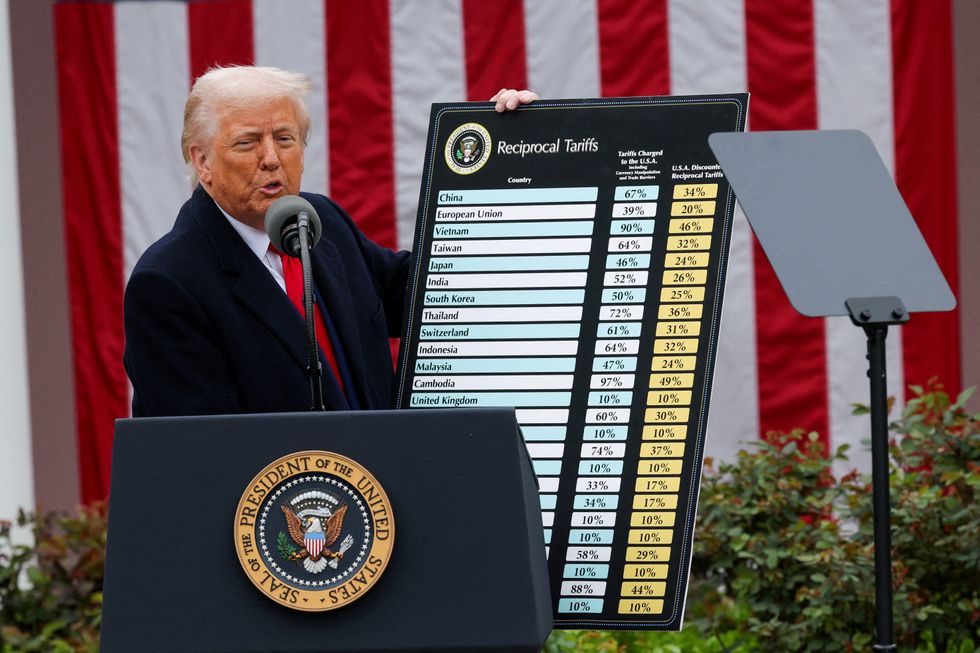
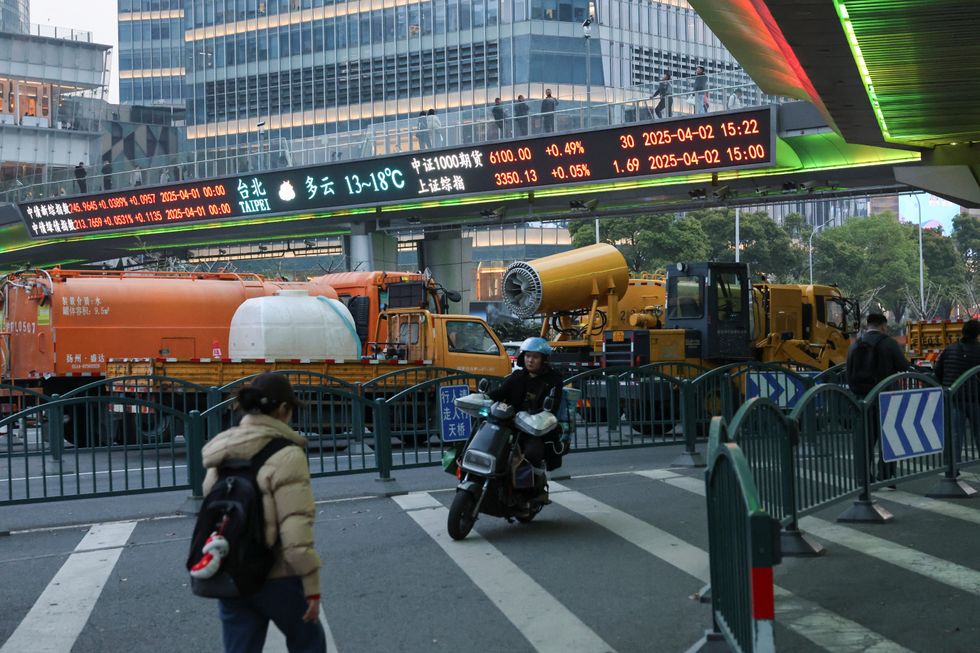
While the UK was spared the harshest treatment in Trump's tariff programme, its economy remains vulnerable to a global slowdown and any escalating trade war.
Business secretary Jonathan Reynolds said: "Anything that disrupts the global trading system is a threat to the UK, because we are a much more globally orientated trading economy than some partners"
Head of US economic research at Fitch Ratings Olu Sonola said: "This is a game-changer, not only for the US economy but for the global economy. Many countries will likely end up in a recession.
"You can throw most forecasts out the door if this tariff rate stays on for an extended period of time."
China, the world's second largest economy, was faced with a fresh 34 per cent tariff on top of the 20 per cent Trump previously imposed, as Beijing vowed countermeasures, seemingly ignoring a warning by US Treasury Chief Scott Bessent that such moves would lead to escalation.
LATEST ON TRUMP'S TARIFF PLANS
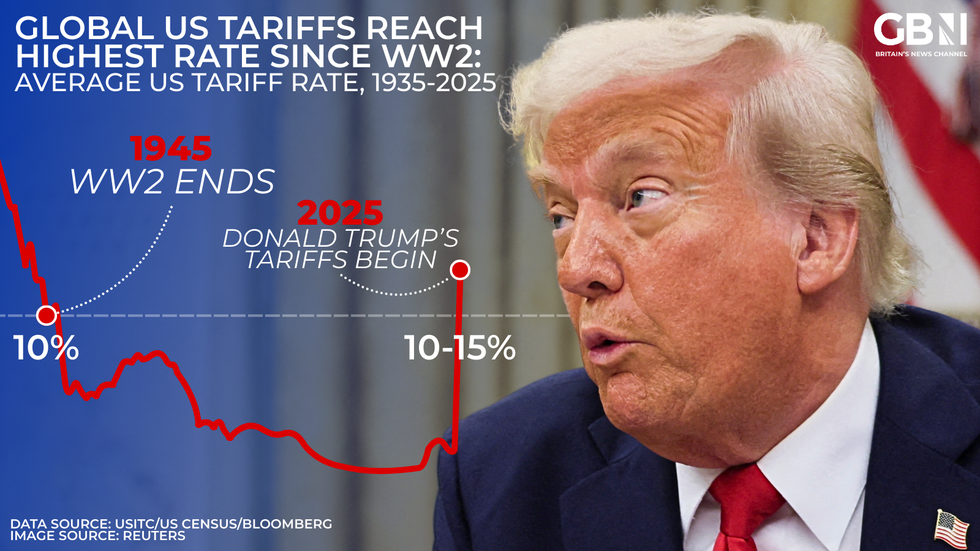
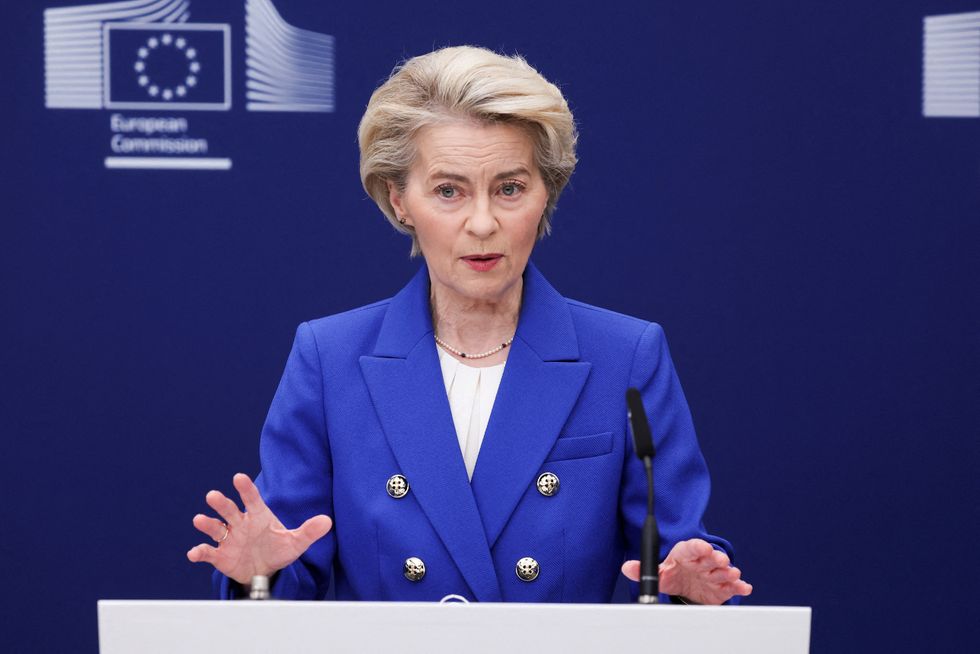
The European Union was not spared, facing a 20 per cent tariff rate. Ursula von der Leyen described the tariffs as a major blow to the world economy and said the 27-member bloc was prepared to respond with countermeasures if talks with Washington failed.
Asia-Pacific chief market strategist at JP Morgan Asset Management Tai Hui said: "You are going to have a supply-side shock via tariffs on the US economy, on prices."
Australian Prime Minister Anthony Albanese said Trump's decision to impose a 10 per cent tariff on its ally was "not the act of a friend," but ruled out reciprocal tariffs against the United States.
Trump singled out Australian beef, which saw a surge in exports to the United States last year, reaching A$4 billion amid a slump in US beef production.
He said: "They won't take any of our beef. They don't want it because they don't want it to affect their farmers and you know, I don't blame them but we're doing the same thing right now."
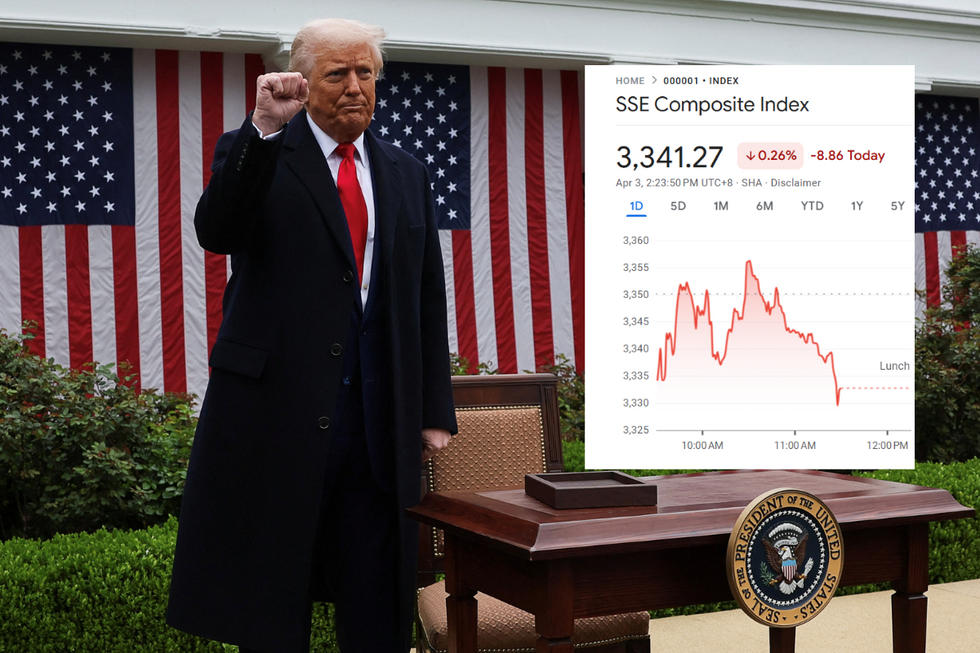
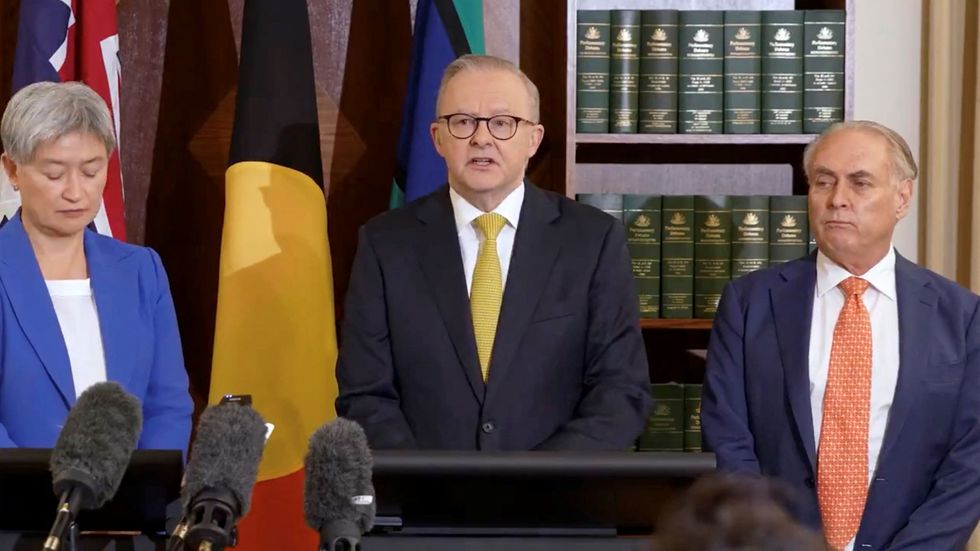
Albanese told reporters: "The (Trump) administration's tariffs have no basis in logic and they go against the basis of our two nations' partnership. This is not the act of a friend."
CEO of global financial advisory deVere Group Nigel Green added: "This is how you sabotage the world’s economic engine while claiming to supercharge it.
"The reality is stark: these tariffs will push prices higher on thousands of everyday goods - from phones to food - and that will fuel inflation at a time when it is already uncomfortably persistent."
Find Out More...
Stock markets in mainland China have opened with the Shanghai Composite index trading broadly flat, while Hong Kong's Hang Seng is down by 1.2 per cent.
Meanwhile Nikkei 225 in Tokyo is down by 2.9 per cent, the Kospi in South Korea is down by 1.7 per cent and Australia's ASX 200 is around 1.2 per cent lower.
The dollar was swept to a six-month low, falling along with US bond yields after Trump imposed tariffs that raise effective import taxes to the highest levels in a century.


While the UK was spared the harshest treatment in Trump's tariff programme, its economy remains vulnerable to a global slowdown and any escalating trade war.
Business secretary Jonathan Reynolds said: "Anything that disrupts the global trading system is a threat to the UK, because we are a much more globally orientated trading economy than some partners"
Head of US economic research at Fitch Ratings Olu Sonola said: "This is a game-changer, not only for the US economy but for the global economy. Many countries will likely end up in a recession.
"You can throw most forecasts out the door if this tariff rate stays on for an extended period of time."
China, the world's second largest economy, was faced with a fresh 34 per cent tariff on top of the 20 per cent Trump previously imposed, as Beijing vowed countermeasures, seemingly ignoring a warning by US Treasury Chief Scott Bessent that such moves would lead to escalation.
LATEST ON TRUMP'S TARIFF PLANS
- POLL OF THE DAY: Do President Trump’s tariffs put you off buying American brands?
- US stock market futures: Markets TUMBLE as Donald Trump rolls out tariffs around the world
- 'Trump's a businessman - I think the UK will be okay', predicts Reform MP Lee Anderson


The European Union was not spared, facing a 20 per cent tariff rate. Ursula von der Leyen described the tariffs as a major blow to the world economy and said the 27-member bloc was prepared to respond with countermeasures if talks with Washington failed.
Asia-Pacific chief market strategist at JP Morgan Asset Management Tai Hui said: "You are going to have a supply-side shock via tariffs on the US economy, on prices."
Australian Prime Minister Anthony Albanese said Trump's decision to impose a 10 per cent tariff on its ally was "not the act of a friend," but ruled out reciprocal tariffs against the United States.
Trump singled out Australian beef, which saw a surge in exports to the United States last year, reaching A$4 billion amid a slump in US beef production.
He said: "They won't take any of our beef. They don't want it because they don't want it to affect their farmers and you know, I don't blame them but we're doing the same thing right now."


Albanese told reporters: "The (Trump) administration's tariffs have no basis in logic and they go against the basis of our two nations' partnership. This is not the act of a friend."
CEO of global financial advisory deVere Group Nigel Green added: "This is how you sabotage the world’s economic engine while claiming to supercharge it.
"The reality is stark: these tariffs will push prices higher on thousands of everyday goods - from phones to food - and that will fuel inflation at a time when it is already uncomfortably persistent."
Find Out More...
